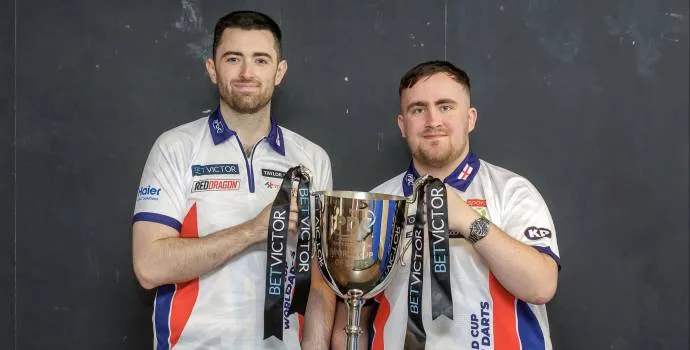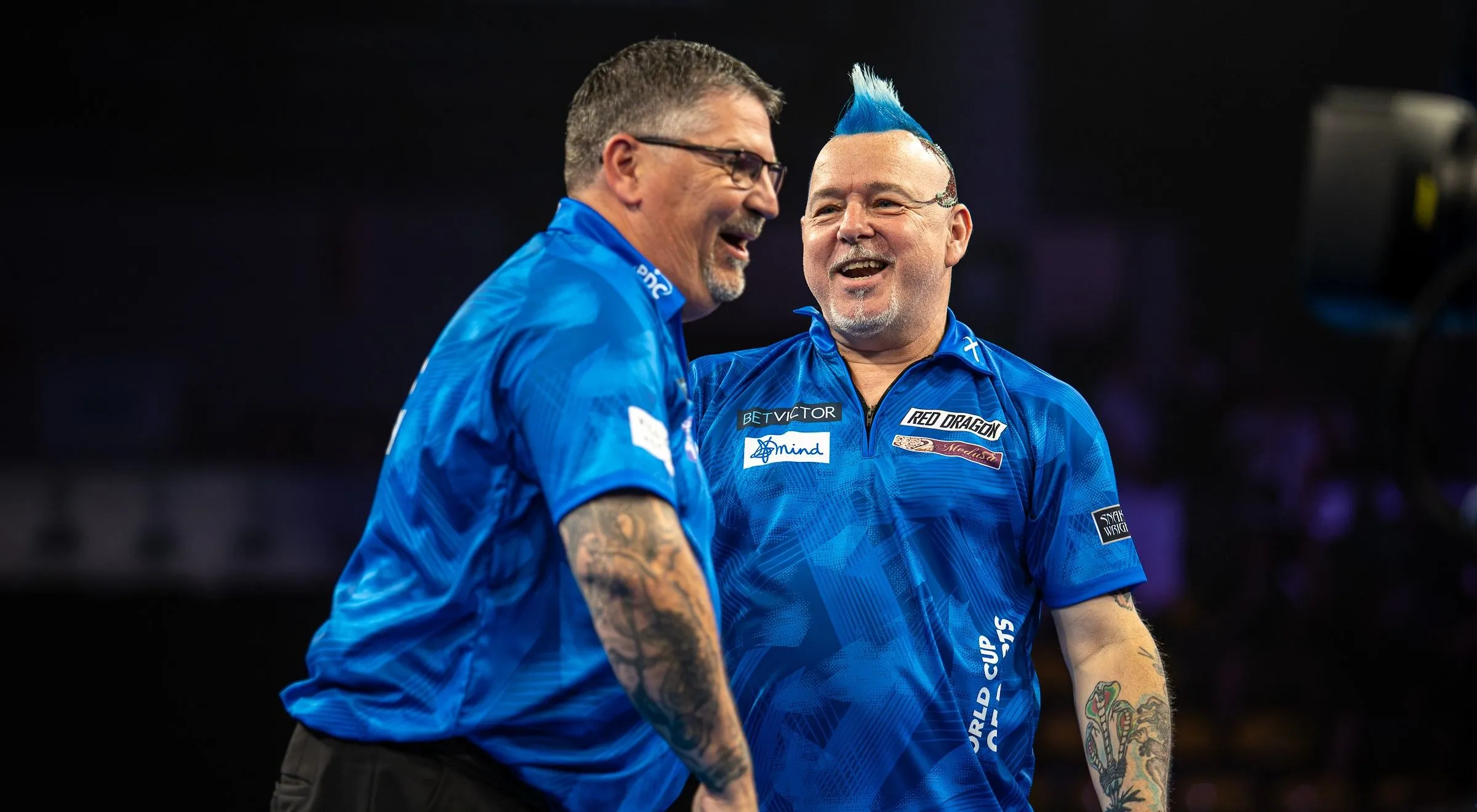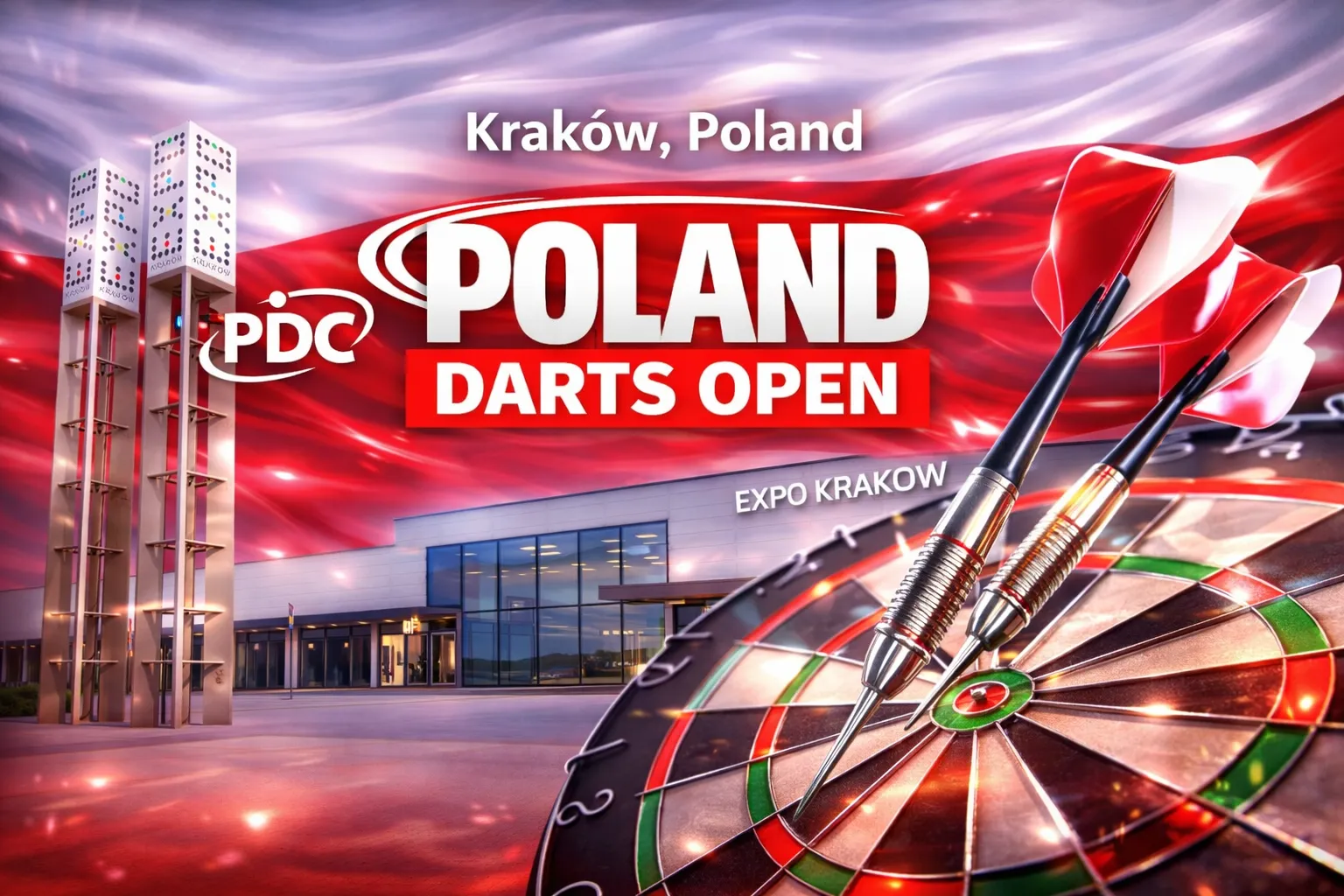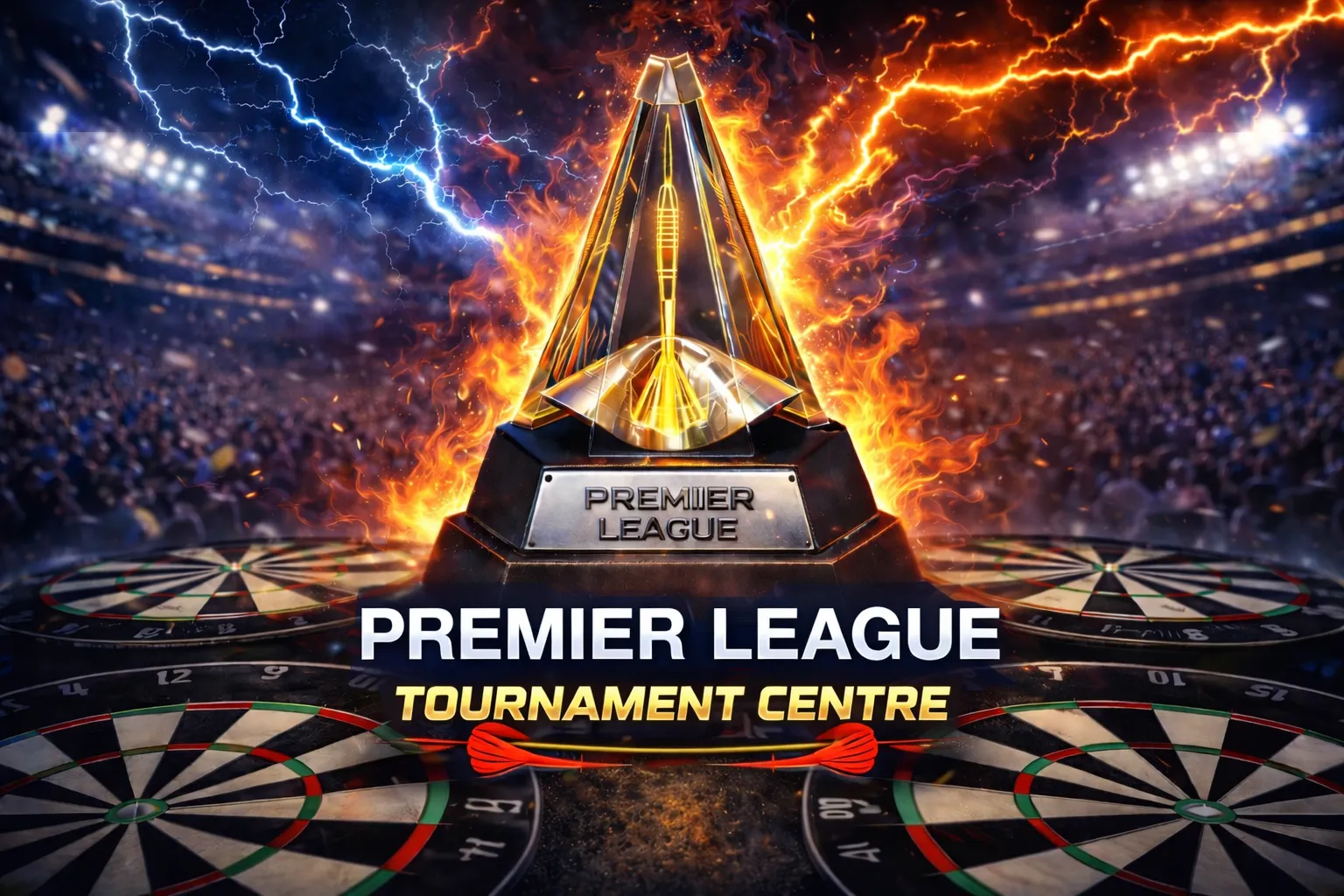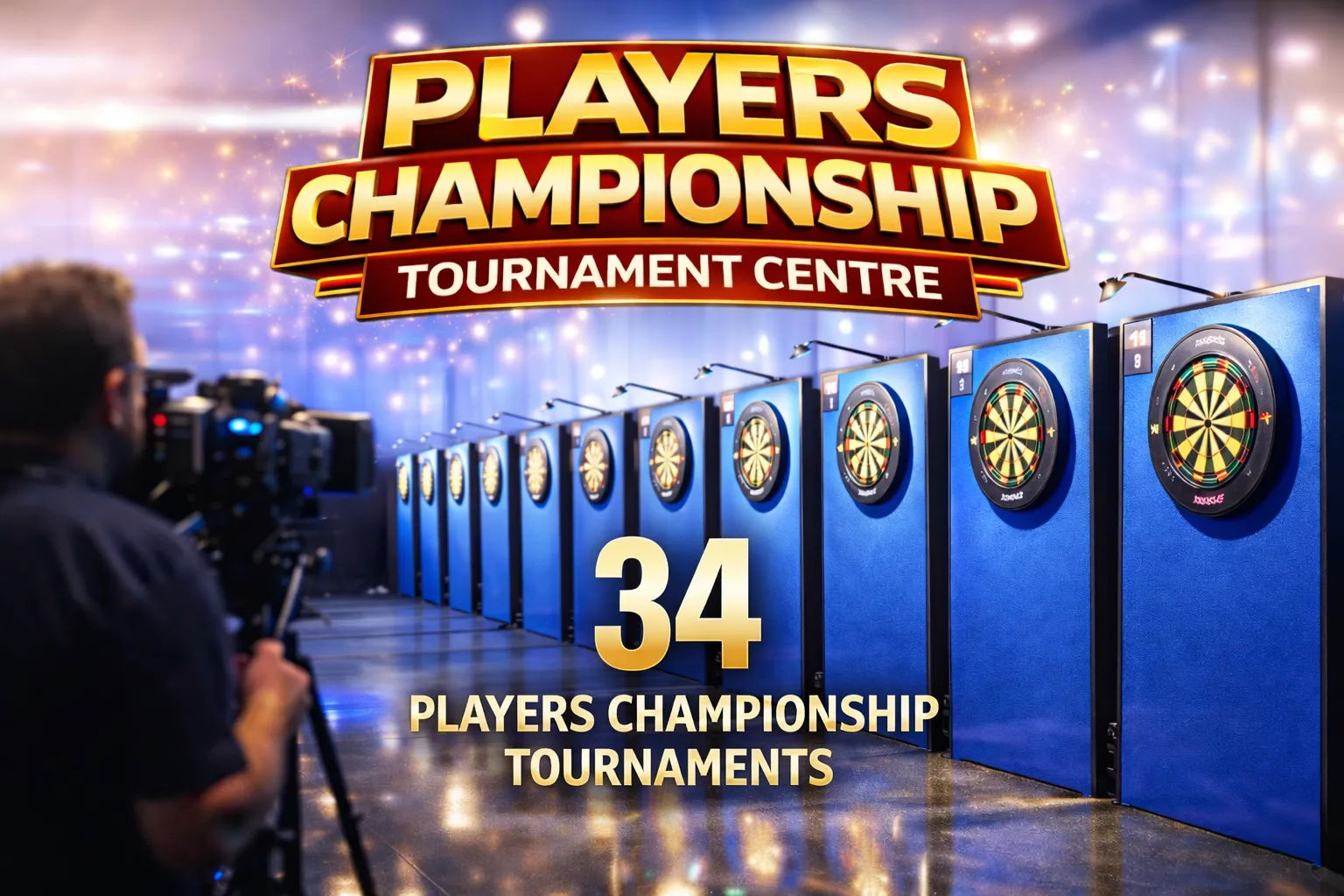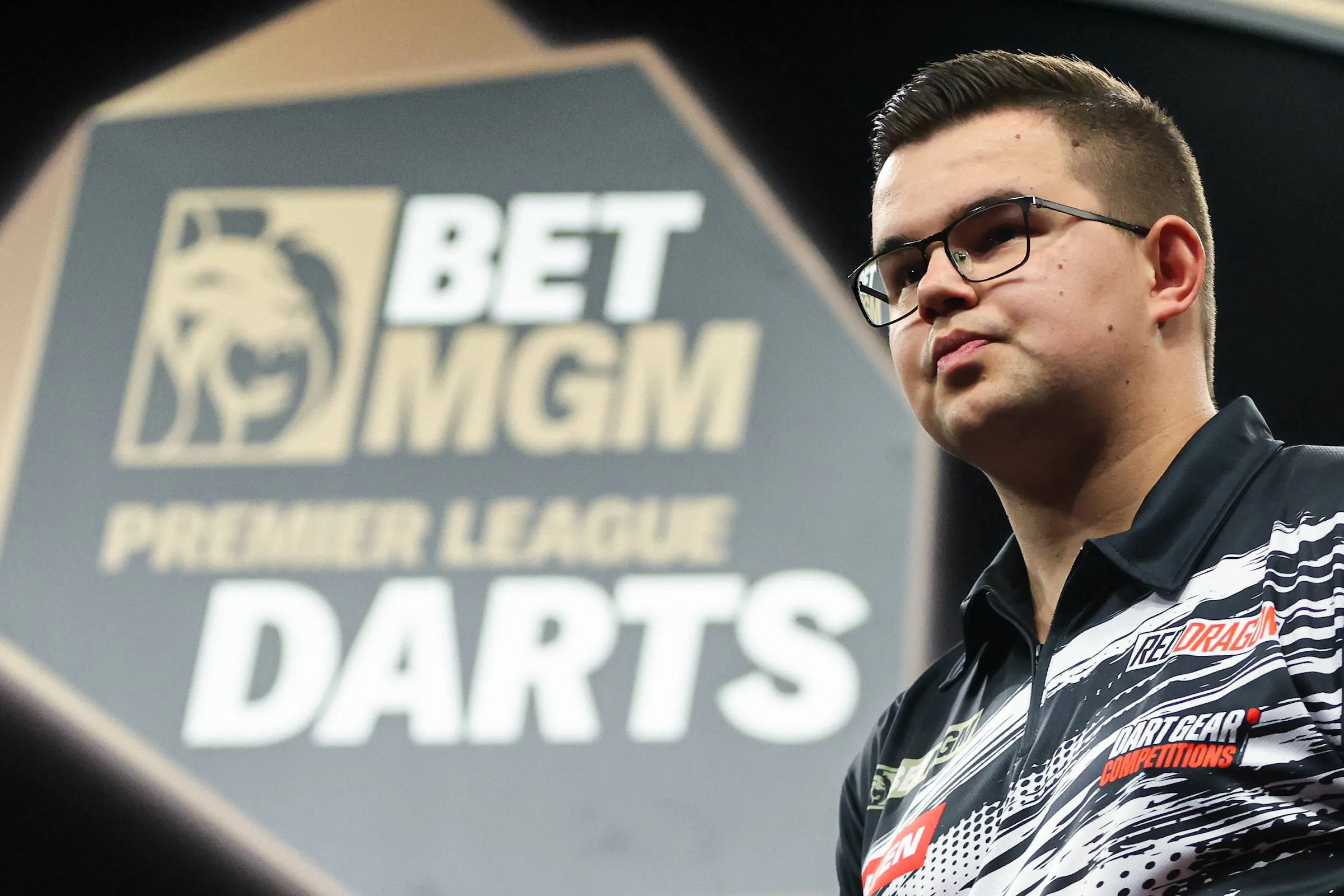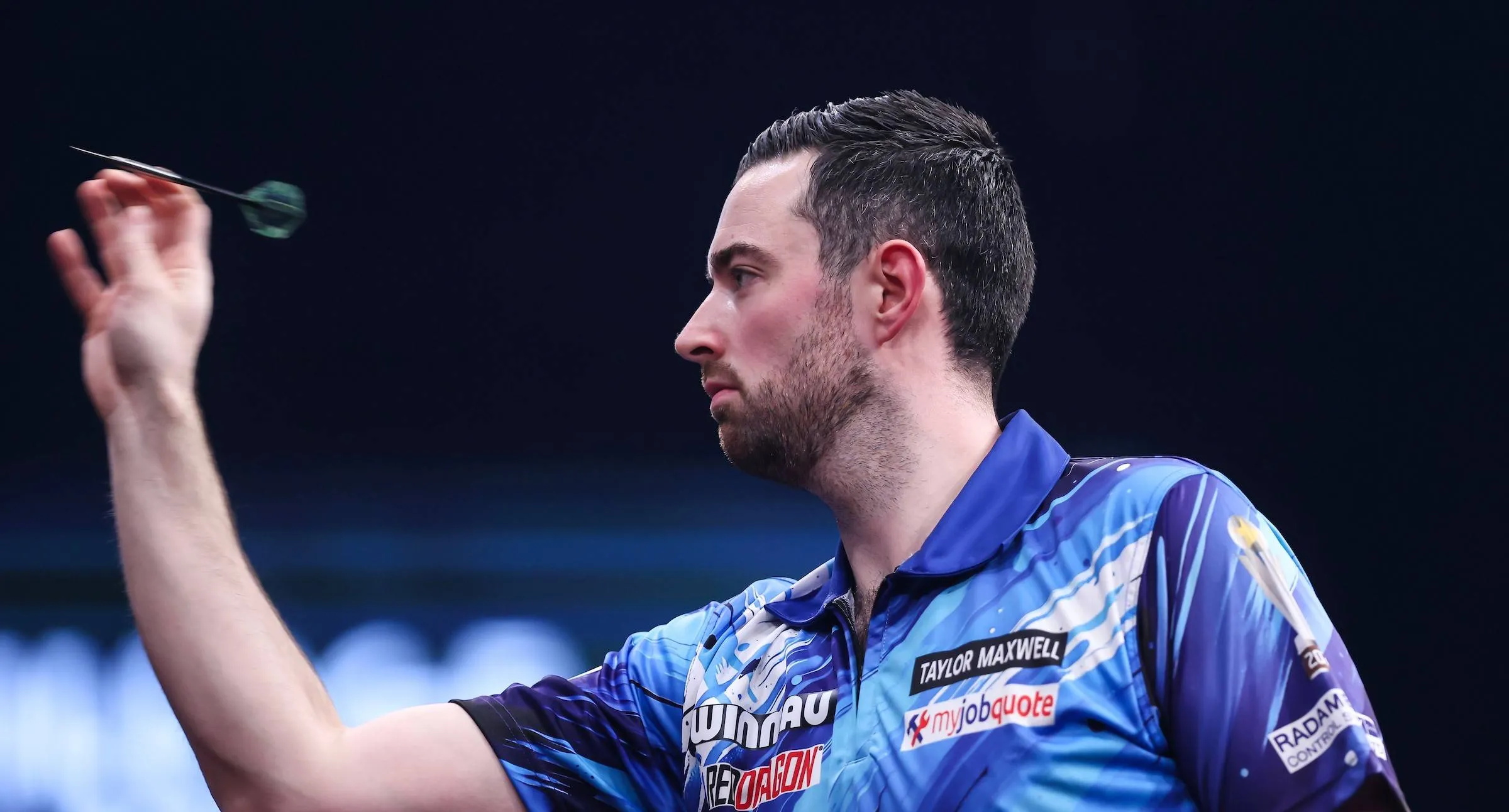Preview World Cup of Darts 2025: Can anyone stop Luke Littler and Luke Humphries giving the English another title?
PDCWednesday, 11 June 2025 at 18:03
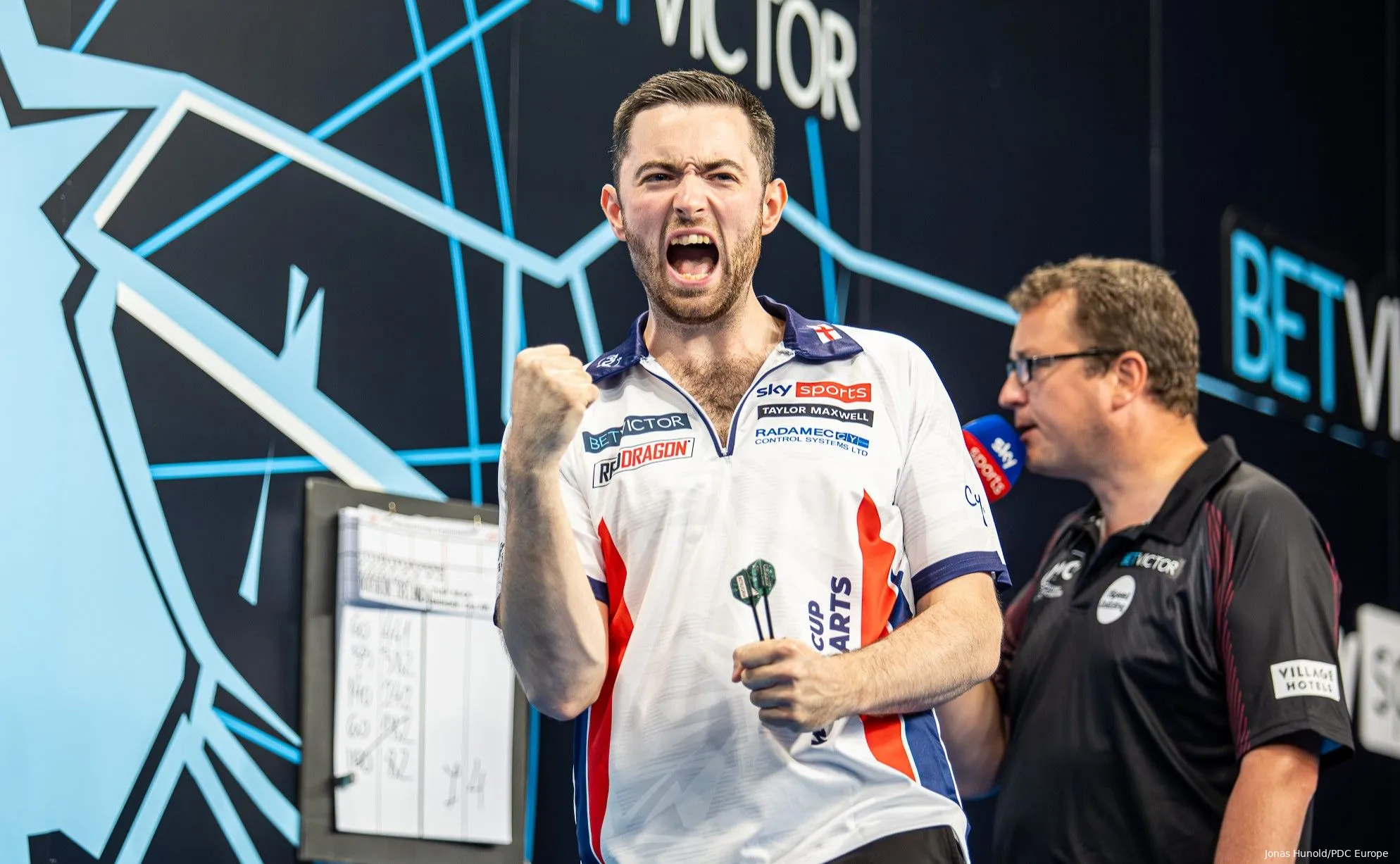
One of the most entertaining tournaments on the darts calendar is just around the corner. This isn’t about individual glory, but teamwork—pairs representing their country on stage in pursuit of national pride. The World Cup of Darts isn’t just about 180s and ton-plus checkouts—it’s about chemistry, communication, and the ability to thrive as a duo under pressure.
The 15th edition of this global event takes place from Thursday 12 to Sunday 15 June at the Eissporthalle in Frankfurt. A total of 80 players from 40 nations will compete, representing six continents—truly making this a worldwide celebration of darts.
As the only pairs tournament on the PDC calendar, the World Cup of Darts offers a unique dynamic. Fist bumps after a big score—or a poor one—offer a glimpse into the camaraderie and mental battle within teams. When a new duo steps onto the oche, it’s always intriguing to see how they gel. Players often display more passion and emotion than usual—there's something special about wearing your country’s colours.
Follow the World Cup of Darts 2025 via our live scores!
Follow the World Cup of Darts 2025 via our live scores!
Read also
History World Cup of Darts
The World Cup debuted in 2010 and was initially set to be a biennial event. But it quickly became a beloved annual fixture. In the inaugural edition, Raymond van Barneveld and Co Stompé took the title for the Netherlands. Two years later, England’s powerhouse pairing of Phil Taylor and Adrian Lewis claimed the trophy.
For six years, England and the Netherlands dominated, alternating victories. Van Gerwen and Van Barneveld spearheaded the Dutch efforts, while England called on legends like Taylor and Lewis. After eight editions, the rivalry was perfectly poised: four titles apiece.
But that era of dominance has faded. Neither nation has won since 2016, and the Netherlands haven’t even reached a final since 2018. England made the 2020 final—Michael Smith and Rob Cross falling just short—but had to settle for silver.
In 2019, Scotland broke the duopoly. Gary Anderson and Peter Wright claimed victory, and Wright won again two years later with John Henderson. Wales finally had its moment in 2020, as Gerwyn Price and Jonny Clayton produced a masterclass en route to their maiden title. Then in 2022, Australia earned a landmark triumph thanks to Damon Heta and Simon Whitlock.
A major format revamp came in 2023. The field expanded to 40 nations and the tournament switched to a doubles-only format throughout. The change was an instant hit. Wales, with Price and Clayton reunited, cruised to the title, hammering Scotland 10-2 in a one-sided final.
Then in 2024, England were back on top. For the first time since the days of Taylor and Lewis, they lifted the trophy again. Luke Humphries and Michael Smith saw off Austria in the final—Mensur Suljovic and Rowby-John Rodriguez falling short again, just as they did in 2021.

Michael Smith and Luke Humphries gave England the 2024 title
Read also
Who are the favourites?
This year, all eyes are once more on England. With world No.1 Luke Humphries joined by teenage sensation and current world No.2 Luke Littler, the Three Lions boast an exceptional pairing. It’s Littler’s debut in the World Cup, and dethroning this duo will require something extraordinary.
One potential stumbling block? England, as a top seed, skip the group stage. That could mean they start cold in the knockouts, offering a window of opportunity for sharper opponents. But if Humphries and Littler find their rhythm, few would bet against them lifting the trophy on Sunday night.
Their biggest threat? Wales. Price and Clayton are proven winners and know each other inside out. In most other top nations, one half of the pair is either out of form or a new addition to the setup.
Scotland are represented once again by Anderson and Wright—partnering for the eighth time. For the first time since 2013, Anderson enters as the higher-ranked player, as Wright has slipped down the Order of Merit. While 'Snakebite' has shown flashes of brilliance lately, inconsistency remains his biggest issue.
The Netherlands head into the event as dark horses—especially in the absence of Michael van Gerwen. Danny Noppert returns for a fifth appearance, joined by debutant Gian van Veen. The pair are close off the oche, and their chemistry could prove crucial.
Other potential threats include Northern Ireland, Belgium, and Germany—all fielding new line-ups. Daryl Gurney replaces Brendan Dolan and joins Josh Rock, who impressed on debut last year.
In the Belgian camp, Mike De Decker comes in for Kim Huybrechts, having stunned the darts world last year by winning the World Grand Prix. He partners Dimitri Van den Bergh, who hasn’t played competitively in recent weeks after pausing his career in April for personal reasons. Will we see a rejuvenated Dreammaker—or a rusty one?
Home support will be firmly behind Germany. From 2020 to 2023, the Germans were consistently strong, reaching two semi-finals and two quarter-finals. But last year, Martin Schindler and Gabriel Clemens exited early against Northern Ireland. This time, Schindler is paired with Ricardo Pietreczko—a potentially dangerous blend of scoring power and clinical finishing.
Elsewhere, 2022 champions Australia return with Damon Heta and Simon Whitlock, though the latter is now without a Tour Card. Austria could spring another surprise, with Suljovic now joined by Rowby-John’s younger brother, Rusty-Jake Rodriguez. Sweden might also raise eyebrows—the pairing of Jeffrey de Graaf and Oskar Lukasiak made the quarter-finals last year.

Can Australia pull off another stunt at the Nations Tournament?
Participating countries and teams
| Land | Spelers |
|---|---|
| (1) Engeland | Luke Humphries & Luke Littler |
| (2) Wales | Jonny Clayton & Gerwyn Price |
| (3) Schotland | Gary Anderson & Peter Wright |
| (4) Noord-Ierland | Josh Rock & Daryl Gurney |
| Argentinië | Jesus Salate & Victor Guillin |
| Australië | Damon Heta & Simon Whitlock |
| Bahrein | Sadeq Mohamed & Hasan Bucheeri |
| België | Mike De Decker & Dimitri Van den Bergh |
| Canada | Matt Campbell & Jim Long |
| China | Xiaochen Zong & Lihao Wen |
| Denemarken | Benjamin Reus & Andreas Hyllgaardhus |
| Duitsland | Martin Schindler & Ricardo Pietreczko |
| Filipijnen | Lourence Ilagan & Paolo Nebrida |
| Finland | Teemu Harju & Marko Kantele |
| Frankrijk | Thibault Tricole & Jacques Labre |
| Gibraltar | Craig Galliano & Justin Hewitt |
| Hongarije | György Jehirszki & Gergely Lakatos |
| Hongkong | Man Lok Leung & Lok Yin Lee |
| India | Nitin Kumar & Mohan Goel |
| Ierland | William O'Connor & Keane Barry |
| Italië | Michele Turetta & Massimo Dalla Rosa |
| Japan | Ryusei Azemoto & Tomoya Goto |
| Kroatië | Pero Ljubic & Boris Krcmar |
| Letland | Madars Razma & Valters Melderis |
| Litouwen | Darius Labanauskas & Mindaugas Barauskas |
| Maleisië | Tengku Shah & Tan Jenn Ming |
| Nederland | Danny Noppert & Gian van Veen |
| Nieuw-Zeeland | Haupai Puha & Mark Cleaver |
| Noorwegen | Cor Dekker & Kent Joran Sivertsen |
| Oostenrijk | Mensur Suljovic & Rusty-Jake Rodriguez |
| Polen | Krzysztof Ratajski & Radek Szaganski |
| Portugal | Jose de Sousa & Bruno Nascimento |
| Singapore | Paul Lim & Phuay Wei Tan |
| Spanje | Daniel Zapata & Ricardo Fernandez |
| Taiwan | Pupo Teng-Lieh & An-Sheng Lu |
| Tsjechië | Karel Sedlacek & Petr Krivka |
| Verenigde Staten | Danny Lauby & Jules van Dongen |
| Zuid-Afrika | Cameron Carolissen & Devon Petersen |
| Zweden | Jeffrey de Graaf & Oskar Lukasiak |
| Zwitserland | Stefan Bellmont & Alex Fehlmann |
World Cup of Darts draw
The four top nations England, Wales, Scotland and Northern Ireland have been admitted directly to the knockout phase of the nations' tournament. The remaining 36 nations begin in a pool phase, with the countries divided into 12 groups of three nations each. The three nations will play the other teams once in the pool and then the 12 group winners will advance to the last 16, where they will thus be joined by the four top nations.
| Groep | Teams |
|---|---|
| Groep A | (5) Nederland, Italië, Hongarije |
| Groep B | (6) België, Letland, Filipijnen |
| Groep C | (7) Duitsland, Portugal, Singapore |
| Groep D | (8) Ierland, Gibraltar, China |
| Groep E | (9) Polen, Zuid-Afrika, Noorwegen |
| Groep F | (10) Canada, Maleisië, Denemarken |
| Groep G | (11) Zweden, Litouwen, Frankrijk |
| Groep H | (12) Oostenrijk, Spanje, Australië |
| Groep I | (13) Verenigde Staten, Hongkong, Bahrein |
| Groep J | (14) Tsjechië, Taiwan, India |
| Groep K | (15) Kroatië, Japan, Zwitserland |
| Groep L | (16) Finland, Nieuw-Zeeland, Argentinië |
Format World Cup of Darts
During the World Cup of Darts, all matches are played in pairs. In the group stage, the format is best of 7 legs. The first team to win four legs will emerge victorious.
Once the tournament reaches the knockout stage, the match format changes. In the second round, quarterfinals and semifinals, teams must battle until either team has eight legs on the board. In the finals, the bar is set a little higher still, as there a victory is not in until one team manages to win 10 legs.
Prize money at the World Cup of Darts
A total of as much as £450,000 in prize money will be paid out during the tournament. Teams that get stuck in the group stage will each receive a minimum of £2,000 per player. For the darters of the four highest seeded countries, the guaranteed starting amount is higher: they will receive £9,000 per person regardless of their result.
Starting in the quarter-finals, the big money really starts rolling in. If a team reaches that round, each player earns 10,000 pounds. Semi-finalists receive £15,000 each. The players who narrowly miss out on the title receive £25,000 each. Winners are awarded a handsome 40,000 pounds per player. The prize money won does not count toward the PDC Order of Merit because the World Cup of Darts is not a ranking tournament.
| Resultaat Tornooifase | Prijzengeld (totaal) | Prijzengeld per speler |
|---|---|---|
| Winnaars | £80.000 | £40.000 |
| Verliezend finalisten | £50.000 | £25.000 |
| Halve finalisten | £30.000 | £15.000 |
| Kwartfinalisten | £20.000 | £10.000 |
| Verliezers laatste 16 | £9.000 | £4.500 |
| Nummers twee in groepsfase | £5.000 | £2.500 |
| Nummers drie in groepsfase | £4.000 | £2.000 |
claps 0visitors 0
Just in
Popular news
Latest comments
- So,it's a rubbish league,waste of time. Just put 8000 people in a building every Thursday,get them all drunk,and wonder why it's a complete joke. And forget every other player apart from 8. It's a ridiculous,inane,and needless so called competition.rick6718-02-2026
- Sorry,I've never been a professional darts player,but obviously from your comment,you have. So, going to your reply, you're blaming the management,not the player? So in that respect,he should get a different manager? That's basically all your comment is saying. Don't let him do money makers,which Barney said is easy money, instead of tournaments? Shake hands instead of trophies? Well I guess the manager knows best,as he has a big cut!rick6716-02-2026
- Sorry Mr rick67, erm what punditry credentials do you have to comment on a pundit? There's a reason why many top professionals have management teams. They know how to manage schedules etc so the players can just play. And how is Edgar wrong? Last year MVG failed to qualify by missing too many tournaments and underperforming. He's repeating the error this year so Edgar is right In calling this out.BandB15-02-2026
- Just get of Mardle,I didn't pay to watch him,and I don't want him for free! Let's see,how many world champions,either code,did you win? None! Now mason does it more as a player who was a floor player than you were putting pineapple on your shirt. Mardle,just go,you over inflated ego may follow. Tell you what,get on the seniors tour,and show everyone how good you weren'trick6715-02-2026
- Sorry Mr Edgar,erm what have you actually won to comment? Mvg has had his issues,but you have won a grand total of what? I make that nothing. So how can your comment be justified? Let him do what he likes,you do what you like, and we'll see what you win nextrick6715-02-2026
- Seems to be having a moan for no reason and using “Do-Gooder” as an insult makes no sense. It literally means someone who does good things!Wonker12-02-2026
- Mickey Vs mensur for the world champion? It's starting tomorrow,finishes in January!!rick6711-02-2026
- Oh well that's it then. Both these goofs will expect and demand premier league darts next year after this.richieburnettrocks10-02-2026
- Sincere apologies to Richie, I forgot yesterday, slightly belated but Happy Birthday to the great man. Certainly looking good for 59richieburnettrocks08-02-2026
- He's a nice bloke. He's sort of portrayed as a villain,but he isn't. He plays with heart. Sure he's had issues with the crowd,who are mostly in drink,and some players,but which player hasn't? Littler will have to get used to booing,the crowds always get fed up with consistency. However,Humphries won't have that problem,he's a top bloke too,humble.rick6708-02-2026
Loading
